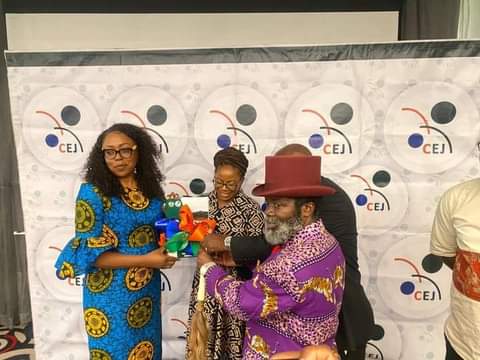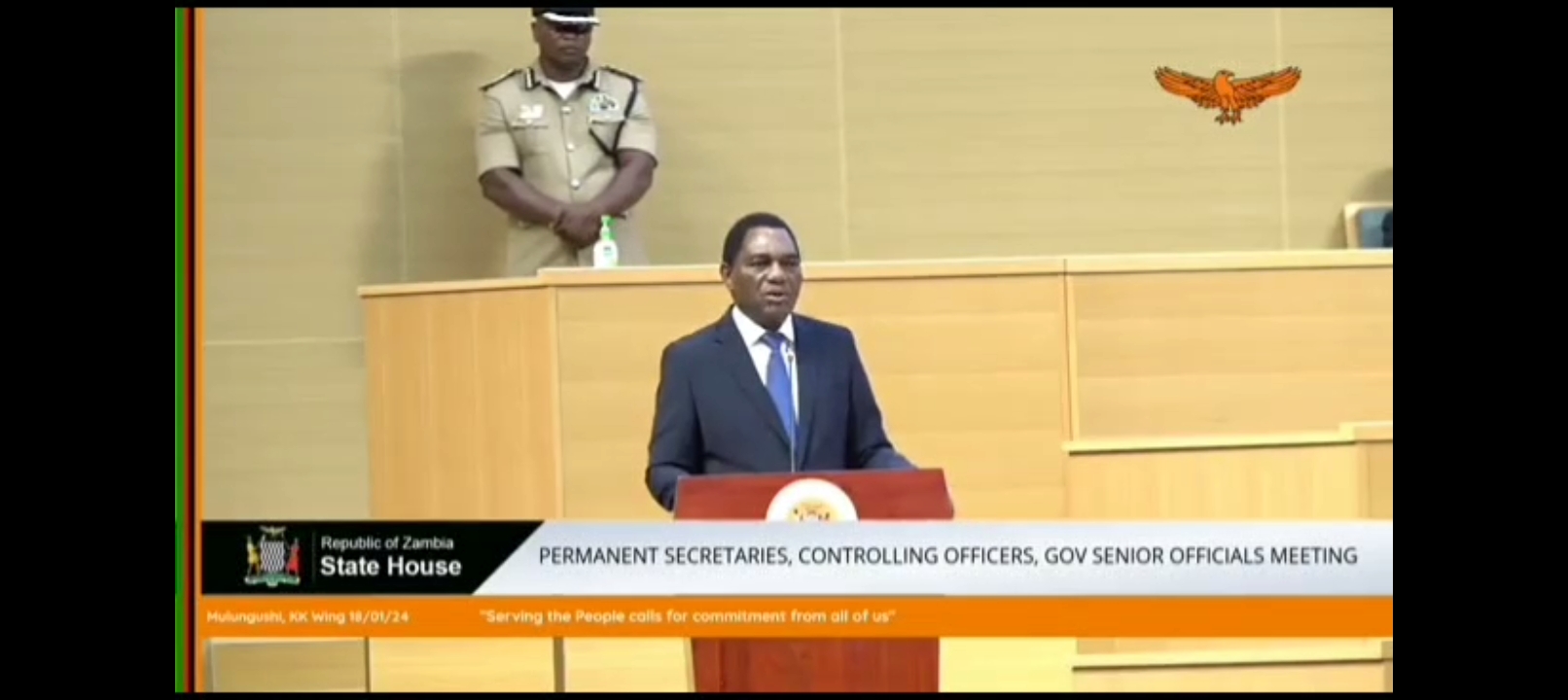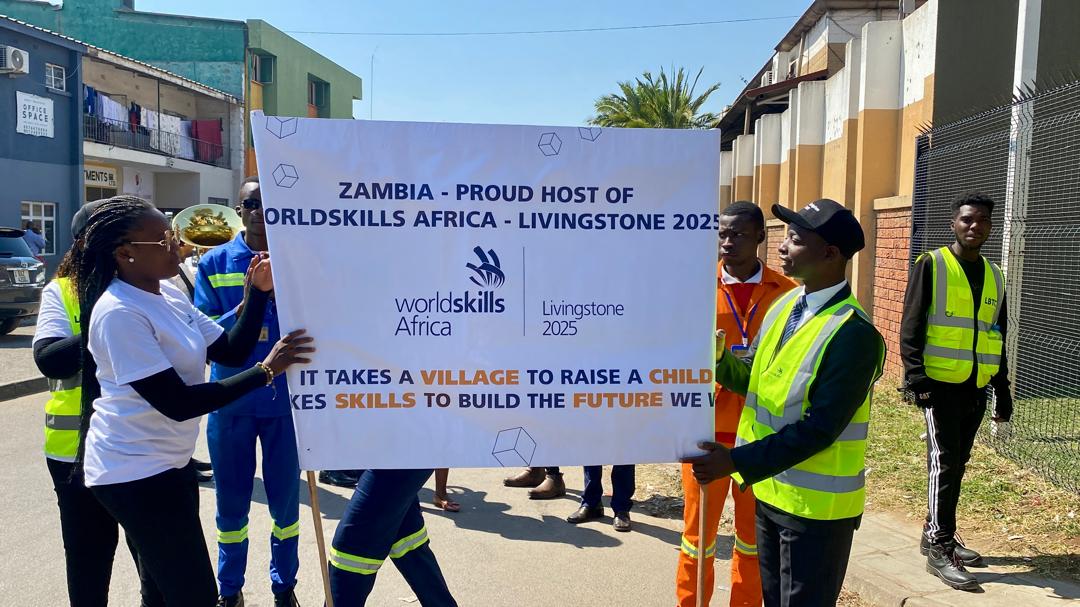Lusaka, Tuesday (November 28, 2023)
Centre for Environment Justice (CEJ) has launched a Strategy and Implementation Framework for the Environmental Protection Dialogue (EPD), the biggest annual environmental event co-hosted with the Ministry of Green Economy and Environment.
Speaking in Lusaka today, CEJ Board Chairperson Vincent Ziba says his Organization is committed to complimenting Government efforts in co-creating solutions to Zambia’s environmental challenges through the EPD.
“As we reflect on the journey that brought us to this significant milestone, it is essential to acknowledge the profound impact of the Environmental Protection Dialogue since its inception in 2020,” he said.
Mr. Ziba said the EPD, conceived as a multistakeholder platform, has evolved into the largest forum for engagement in the environmental sector in Zambia.
“Over the past four years, we have witnessed a remarkable increase in participation, with stakeholders ranging from government bodies, foreign embassies, traditional leaders, civil society organizations, academia, and grassroots communities converging to deliberate on critical environmental issues. Our themes ranging from sustainable mining and ecosystem restoration to environmental equity and equal protection underscore the breadth of our commitment to finding holistic solutions. The EPD has not only served as a platform for dialogue but as a catalyst for action,” he said.
Mr. Ziba said the EPD has facilitated discussions on environmental policy, plans, and mechanisms while actively contributing to the implementation of actions across sectors with the involvement of diverse stakeholders, including traditional leaders, demonstrates the inclusive nature of our dialogue, recognizing the invaluable role they play in ensuring environmental sustainability.
“The EPDs have transcended from mere dialogue, they have become a convergence point for over 200 participants, encompassing a diverse array of stakeholders. Representatives from Government line ministries, foreign embassies, UN Agencies, civil society organizations, academia, traditional leaders, community-based organizations, faith-based organizations, grassroots rural communities, women and youth groups, children and the media have actively engaged in these dialogues,” he said.
Mr. Ziba said the launch of the Strategy and Implementation Framework is a testament to collective commitment to translating dialogue into tangible, impactful actions.
“This Framework serves as our guiding beacon, outlining a clear path forward based on the resolutions emanating from the EPDs and the Traditional Leaders Caucuses. The significance of this launch lies in its ability to propel us from discussion to implementation, turning words into actions that shape the environmental landscape of Zambia. It sums up the call to action that emerged from our dialogues, setting strategic objectives, outcomes, outputs, and activities that will guide our efforts in the years to come. As we embark on this journey, we recognize the unwavering support of our partners, the active engagement of stakeholders, and the pivotal role played by the Government of the Republic of Zambia in hosting and facilitating the EPD. The collaboration with the Ministry of Green Economy and environment, and Ministry of Local Government and Rural Development reflects a shared commitment to environmental stewardship,” he said.
Mr. Ziba said the EPD Strategy and Implementation Framework will be a roadmap, guiding all towards a future where Zambia’s environmental challenges are met with resilience, innovation, and sustainable solutions.
He said this in speech delivered on his behalf by CEJ Board Member Boniface Mumba.
Meanwhile, Chief Ishima of the Lunda people of Zambezi District paid tribute to the Centre for Environment Justice (CEJ) for launching the Strategy.
“In reflecting upon the years from 2020 to 2023, I am compelled to commend the Centre for Environment Justice (CEJ) and its partners for its instrumental role in orchestrating a series of pivotal Environmental Protection Dialogue (EPD). This Dialogue has served as a crucial space for multistakeholders to collaboratively address the environmental challenges faced by our nation,” he said.
Chief Ishima said the EPD is important because it has included Traditional Leaders through the establishment of the Traditional Leader Caucus (TLC).
“This dedicated space has facilitated discussions on vital issues such as land laws, environmental governance, conservation, and mineral resource management. Traditional Leaders, cognizant of their indispensable role in ensuring environmental sustainability, have actively engaged in discussions to fortify their influence in the realm of land-based investments and the optimization of carbon financing in Zambia. The EPD resolutions encompass crucial aspects of ecosystem restoration, climate financing and policy, environmental rights and justice, and environmental protection. In recognizing the escalating costs of climate adaptation and mitigation, the resolutions underscore the need for increased accessibility to climate finance, particularly for small-scale farmers who bear the brunt of climate change impacts. The call to strengthen public-private partnerships, viewing climate change adaptation not as a cost but as an opportunity to reshape our economy, resonates with the imperativeness to forge a sustainable future,” he said.




